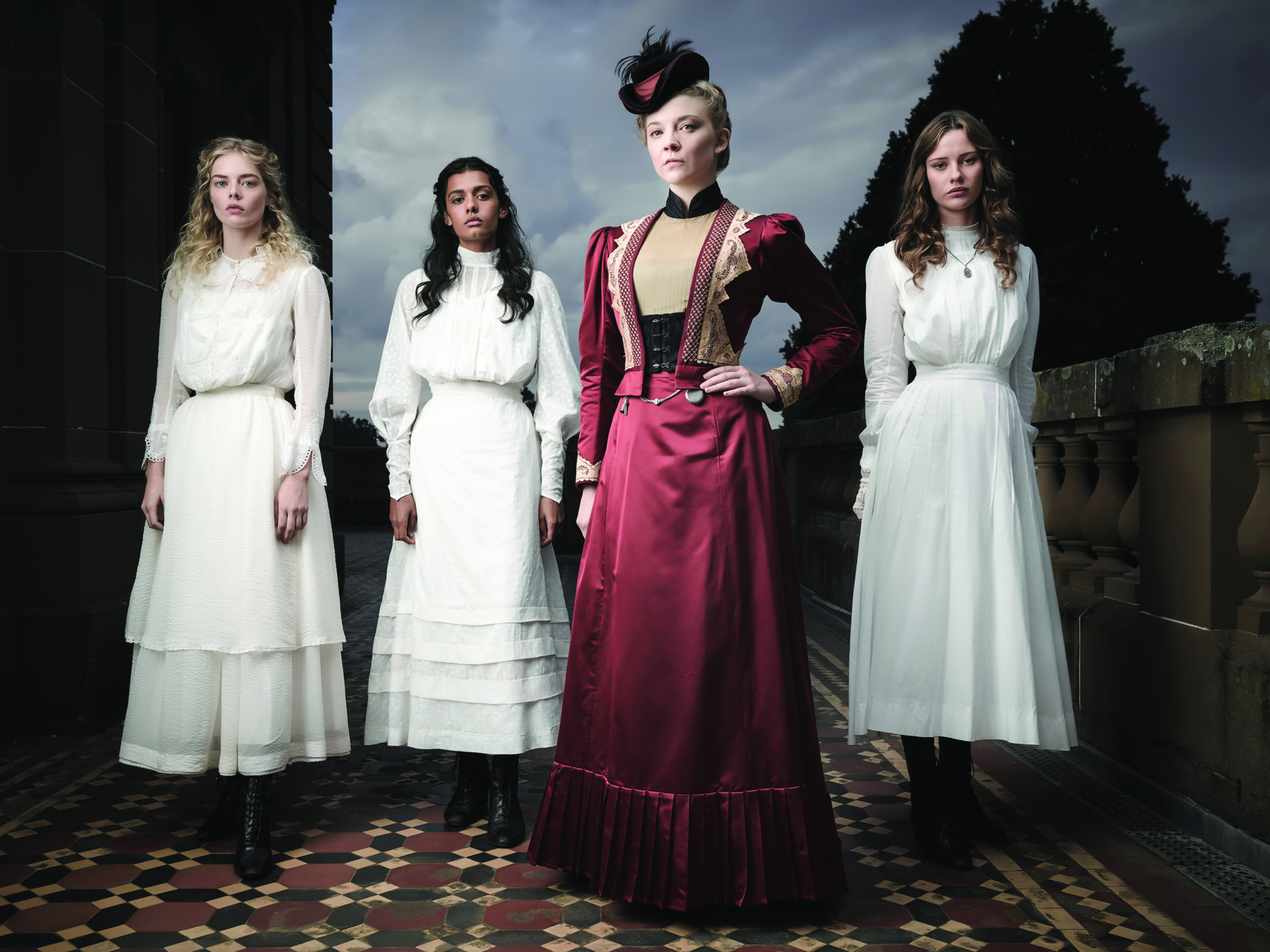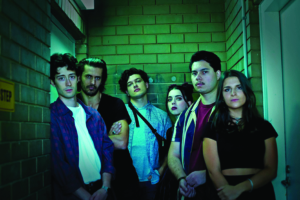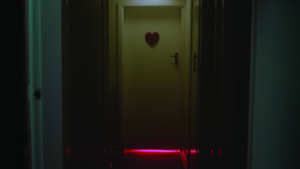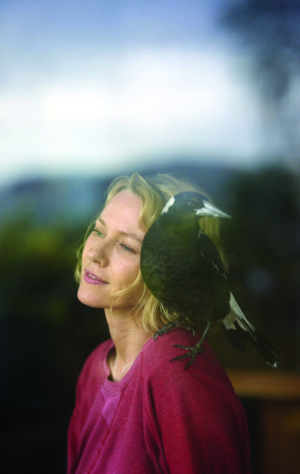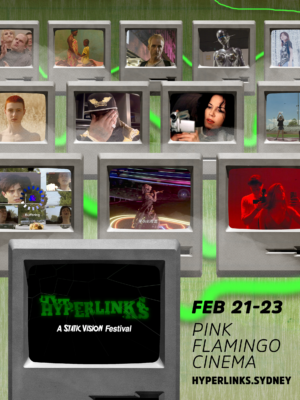When Netflix launched in Australia in March 2015, it was an exciting time. After years of being denied the subscription video-on-demand (SVOD) service, we had a Netflix of our own – and with it came the promise of original programming. For years, the streaming giant has been disrupting the television and film industries with its ‘binge’ model of making every episode of a show available at the same time. Following the release of its first series, House of Cards, in 2013, it has built an empire of original series and films. With Netflix having a sizeable budget (now estimated at US$6 billion[1]Michelle Castillo, ‘Netflix Plans to Spend $6 Billion on New Shows, Blowing Away All but One of Its Rivals’, CNBC News, 18 October 2016, <https://www.cnbc.com/2016/10/17/netflixs-6-billion-content-budget-in-2017-makes-it-one-of-the-top-spenders.html>, accessed 25 October 2017. ) to spend on original programming as part of its rapid expansion globally, surely – like many other countries – Australia would have a Netflix original series of our own? Despite there being plenty of offerings from other networks, though, Netflix’s launch did not include a local production with the ‘Netflix original’ badge.
Yet, on that day, a warning shot was fired across our screen industries. Netflix may have kept its billion-dollar plans for Australia a secret, but it would only be a matter of time before the giant – and its SVOD counterparts – would wake and give subscribers a reason to forgo free-to-air, and possibly even an excuse to not venture out to cinemas.
That’s the big selling point of Netflix: original programming. In 2015, the streaming arms race for original Australian programming officially began, and what started as a cold war has heated up, with Netflix and competitors Stan and Foxtel all having made major gains by commissioning local productions. This signifies a huge change for the local screen industries. The major free-to-air networks were once the guardians of what got the go-ahead. But the field has now widened to include streaming services hungry for ideas. Significantly, the audience is ready and waiting: Roy Morgan Research has found that an estimated 7 million Australians aged fourteen and over live in a household with a Netflix account.[2]‘Over 1 in 3 Australians Now Have Netflix as Subscriptions Jump 20 Percent in First Quarter of 2017’, media release, Roy Morgan Research, 8 June 2017, <http://www.roymorgan.com/findings/7242-netflix-subscriptions-march-2017-201706080957>, accessed 25 October 2017. But how much local programming is getting commissioned by these new players in town?
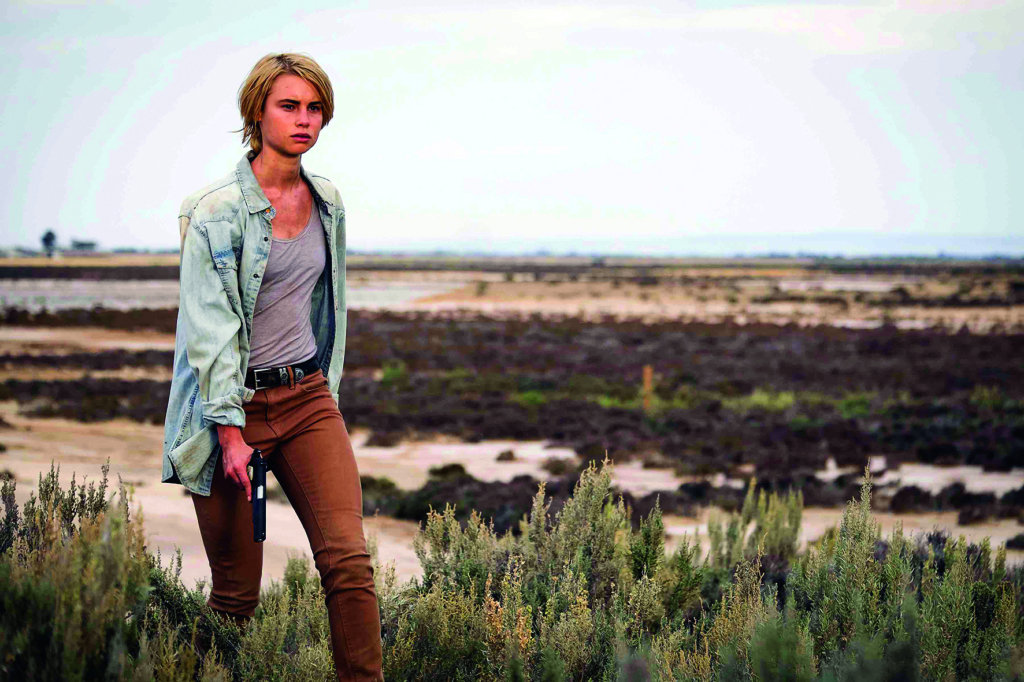
Stan
Back in 2015, Australian SVOD provider Stan launched the Jungleboys comedy series No Activity as its first original title. The show focuses on two policemen (played by Patrick Brammall and Darren Gilshenan) on a stake-out, building to an odd tale of ‘cops and robbers’. No Activity received positive reviews – The Sydney Morning Herald called it ‘the Seinfeld of cop shows’[3]James Mitchell, ‘No Activity: Streaming First Cops It Sweet’, The Sydney Morning Herald, 15 October 2015, <http://www.smh.com.au/entertainment/tv-and-radio/streaming-first-cops-it-sweet-20151008-gk4w45>, accessed 25 October 2017. – and, in 2016, it became the first ever SVOD series to be nominated for a Logie.
No Activity’s second season premiered in 2016, and a US remake – to be produced by comedy heavyweights Will Ferrell and Adam McKay – has been commissioned by CBS for its streaming service, CBS All Access.[4]Nellie Andreeva, ‘CBS All Access Greenlights Drama Series Strange Angel & $1, First Comedy Series No Activity, Mulls More Big Brother – TCA’, Deadline Hollywood, 1 August 2017, <http://deadline.com/2017/08/cbs-all-access-strange-angel-1-no-activity-more-big-brother-1202140299/>, accessed 25 October 2017. This remake will join Star Trek: Discovery and The Good Wife spin-off The Good Fight, but here’s where it gets complicated: CBS recently purchased Network Ten and is planning to launch CBS All Access in Australia.[5]Peter Ryan, ‘US TV Giant CBS to Buy Troubled Ten Network, Creating Potential Streaming Rival to Netflix, Stan’, ABC News, 28 August 2017, <http://www.abc.net.au/news/2017-08-28/cbs-agrees-to-buy-ten-off-administrator/8848124>, accessed 25 October 2017. This presents a major shake-up for the local industry, but there’s no word yet on how CBS’s presence will affect the streaming wars.
Stan continues to build its library of originals. Earlier in 2015, it had revived Plonk – a satire about a television crew trying to make a show about wine, whose first season aired on Eleven – for a second season. The following year, it launched Wolf Creek, a television spin-off of Greg McLean’s eponymous film series (2005–2013). And Aquarius Films’ The Other Guy landed last year; the comedy series stars and was co-written by comedian Matt Okine. Stan’s next big original show is Romper Stomper, a television sequel to Geoffrey Wright’s 1992 film of the same name that will continue the story of neo-Nazis living in Australia. Jacqueline McKenzie, Dan Wyllie and John Brumpton will reprise their roles for the series, and Wright will return to direct two episodes.[6]Luke Buckmaster, ‘Romper Stomper Remake: A Modern-day Series About Extremism? Exciting but Problematic’, The Guardian, 1 August 2017, <https://www.theguardian.com/tv-and-radio/2017/aug/01/romper-stomper-remake-a-modern-day-series-about-extremism-exciting-but-problematic>, accessed 25 October 2017.
When it comes to original Australian programming with a focus on streaming, it seems Stan is leading the pack.
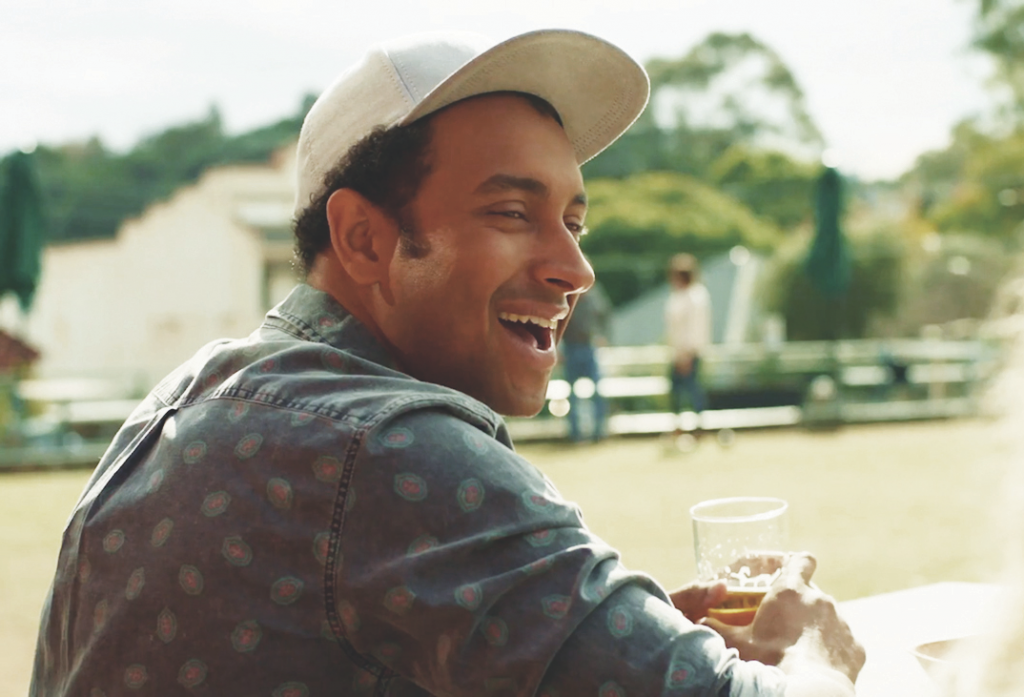
Netflix
It wasn’t until May 2017 that Netflix announced its first Australian original series, Tidelands, a Hoodlum Entertainment–produced supernatural crime drama set in a fishing village inhabited by half-siren, half-human creatures. Co-creator and co-executive producer Tracey Robertson stressed at the time that the team ‘are thrilled to be making it on our home soil in Australia with fantastic creatives and highly skilled crews’.[7]Tracey Robertson, quoted in ‘Netflix Announces Tidelands, Its First Australian Original Series’, media release, Netflix, 15 May 2017, <https://media.netflix.com/en/press-releases/netflix-announces-tidelands>, accessed 25 October 2017. Netflix then added a second original Australian title to its slate, Pine Gap, a political thriller set around the top-secret US–Australian satellite base in the Northern Territory. Conceived by showrunner Greg Haddrick and co-writer Felicity Packard, the miniseries is backed by the South Australian Film Corporation and Screen Territory, and will be developed by Screentime for the ABC and Netflix.[8]Don Groves, ‘Netflix and ABC Co-commission Pine Gap Miniseries’, IF.com.au, 14 September 2017, <https://www.if.com.au/netflix-abc-co-commission-pine-gap-miniseries/>, accessed 25 October 2017.
Keeping these productions based in Australia is a big deal and, as Netflix expands its local output, they could pop up all over the country. That’s the extremely optimistic view – but, in order for Netflix to sustain subscriber interest beyond its international offerings, it needs to invest in local productions in the long term as it integrates itself into our film and television industries.
If a company like Netflix or Amazon comes to town asking for subscribers, wielding budgets in the billions and tacking ‘Australia’ onto the end of its name, it must match those overtures with an actual investment in local programming.
While Tidelands and Pine Gap are the first original Australian series to be commissioned by Netflix, the streaming company has been involved in co-producing local titles, with the aim of adding them to its global library. Shows that have benefited from the Netflix vote of confidence include Glitch, Beat Bugs, Bottersnikes & Gumbles, Mako Mermaids: An H2O Adventure, White Rabbit Project and the forthcoming Legend of Monkey; kids programming is evidently the testing ground. Netflix also picked up the ABC’s The Code and Miss Fisher’s Murder Mysteries for global distribution.
It’s no coincidence that, shortly after Miss Fisher gained a foothold in the US – television critics praised it so much that The Guardian proclaimed it had ‘conquered America’[9]Lilit Marcus, ‘How Miss Fisher’s Murder Mysteries Conquered America’, The Guardian, 14 October 2015, <https://www.theguardian.com/tv-and-radio/2015/oct/13/how-miss-fishers-mysteries-conquered-america>, accessed 25 October 2017. – its star, Essie Davis, landed a role on HBO behemoth Game of Thrones. Here, we see another huge benefit offered by the Netflix bump: exposing Australian talent to a wider, international audience.
Foxtel
With the unveiling of its Foxtel Now streaming service in June 2017, Foxtel is finally in the process of cutting the cord in Australia. Like Netflix and Stan, it has a library of international offerings but is only recently beginning to boost its Australian slate. During its transition from cable to streaming, Foxtel has launched several local originals, including Wentworth, Open Slather, Australia’s Next Top Model, The Real Housewives of Melbourne, A Place to Call Home, The Kettering Incident and Secret City. It’s an impressive list, but it’s worth keeping in mind that Foxtel has channels with twenty-four hours worth of programming to fill. It also still offers channels that can be streamed live as part of different Foxtel Now packages, but there’s no denying that the provider’s mindset is moving away from its cable-television subscription model and towards SVOD.
One of the biggest drawcards for Foxtel’s new life as streaming provider is its FremantleMedia Australia–produced, Screen Australia–funded television remake of the iconic Australian film Picnic at Hanging Rock (Peter Weir, 1975), set to air this year. Amazon has acquired US distribution rights, in a commercial deal reputed to be the largest ever for an Australian series.[10]Pip Bulbeck, ‘Amazon Prime Acquires Australian Drama Picnic at Hanging Rock’, The Hollywood Reporter, 21 July 2017, <http://www.hollywoodreporter.com/news/amazon-prime-acquires-australian-drama-picnic-at-hanging-rock-1023213>, accessed 25 October 2017.
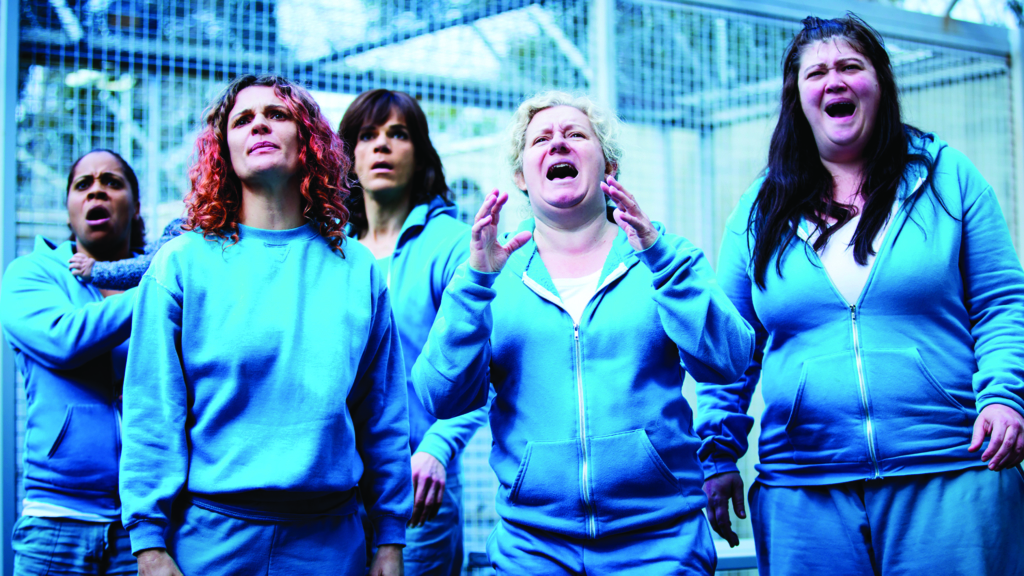
The ABC and Amazon
ABC iview acts primarily as a catch-up service for the network’s broadcast programs, with the exception of Rake, Doctor Who and Class, which screen on iview before their timeslots on free-to-air. But the ABC is also commissioning original shows exclusive to its streaming platform under the banners of ‘ABC Arts’ and ‘iview Presents’. The most high-profile example is the second season of The Katering Show – created by and starring Kate McCartney and Kate McLennan – which, after gaining attention on YouTube, made the leap to iview in 2016, and spurred the 2017 spin-off series Get Krack!n. While the ABC has been chipping away at feeding original programming into iview, there’s still room for improvement in terms of evolving the platform into something resembling SVOD. After all, according to the ABC, ‘In 2015–16, there were an average of 2.4 million visitors and 14.7 million visits per month to ABC iview’s website and apps’, with Australian dramas identified as ‘a key driver of iview usage’.[11]ABC, ‘Audience Experiences’, in From the Everyday to the Extraordinary: Annual Report 2016, <http://www.abc.net.au/corp/annual-report/2016/c2-online.html>, accessed 25 October 2017.
On the other hand, Amazon Prime Video Australia is yet to announce any local productions – though Variety has reported that Amazon CEO Jeff Bezos has demanded that his company’s head of television programming find shows with the global reach of Game of Thrones. [12]Cynthia Littleton & Daniel Holloway, ‘Jeff Bezos Mandates Programming Shift at Amazon Studios’, Variety, 8 September 2017, <http://variety.com/2017/tv/news/amazon-studios-jeff-bezos-roy-price-zelda-1202552532/>, accessed 25 October 2017. With Amazon on the hunt for new titles, the time could be ripe for an Amazon original series with an Australian flavour.
*
Why do these SVOD companies need to invest in local programming? Can’t we be happy with imports like Game of Thrones or Twin Peaks?
In its submission to the Australian and Children’s Screen Content Review – conducted by the Department of Communications and the Arts, Screen Australia, and the Australian Communications and Media Authority – Netflix cautioned the Australian Government against imposing local content quotas on streaming services, in response to Screen Producers Australia and other industry bodies lobbying for such restrictions. Specifically, Netflix’s Josh Korn and Corie Wright warned that
reflexive application of regulations built for a market with limited organic demand, or predicated on technical or resource scarcity, can disrupt this virtuous cycle by distorting consumer-driven content buying decisions that have spurred growth of Australian content production and global distribution.[13]Josh Korn and Corie Wright, quoted in Don Groves, ‘Netflix Argues Against Local Content Quota in Oz’, IF.com.au, 27 September 2017, <https://www.if.com.au/netflix-argues-local-content-quota-oz/>, accessed 25 October 2017.
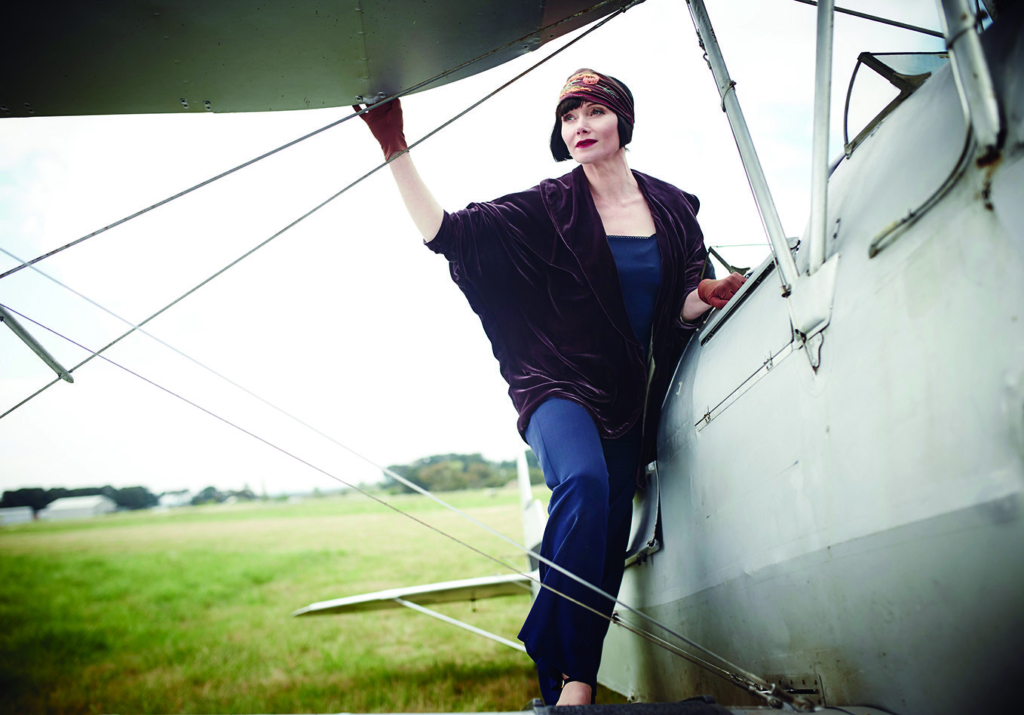
Netflix’s distribution model has undeniably been a boon to the Australian screen industries on the international front, and it’s hard not to read this statement as a call to not bite the hand that feeds. Subsequently, Stan and Google followed suit by voicing their opposition to local content quotas, with the former citing that such restrictions ‘would only serve to stifle innovation and creativity’.[14]See Don Groves, ‘Stan and Google Argue Against a Local Content Quota’, IF.com.au, 9 October 2017, <https://www.if.com.au/stan-and-google-argue-against-a-local-content-quota/>, accessed 25 October 2017.
Certainly, if a company like Netflix or Amazon comes to town asking for subscribers, wielding budgets in the billions and tacking ‘Australia’ onto the end of its name, it must match those overtures with an actual investment in local programming. This is vital to sustaining our industry at a time when audience viewing habits are changing. If the future is SVOD, Australian stories need to carve out a place so that we have a stake in this new screen landscape. Streaming giants can think globally all they want, but they have to act locally at some point.
Endnotes
| 1 | Michelle Castillo, ‘Netflix Plans to Spend $6 Billion on New Shows, Blowing Away All but One of Its Rivals’, CNBC News, 18 October 2016, <https://www.cnbc.com/2016/10/17/netflixs-6-billion-content-budget-in-2017-makes-it-one-of-the-top-spenders.html>, accessed 25 October 2017. |
|---|---|
| 2 | ‘Over 1 in 3 Australians Now Have Netflix as Subscriptions Jump 20 Percent in First Quarter of 2017’, media release, Roy Morgan Research, 8 June 2017, <http://www.roymorgan.com/findings/7242-netflix-subscriptions-march-2017-201706080957>, accessed 25 October 2017. |
| 3 | James Mitchell, ‘No Activity: Streaming First Cops It Sweet’, The Sydney Morning Herald, 15 October 2015, <http://www.smh.com.au/entertainment/tv-and-radio/streaming-first-cops-it-sweet-20151008-gk4w45>, accessed 25 October 2017. |
| 4 | Nellie Andreeva, ‘CBS All Access Greenlights Drama Series Strange Angel & $1, First Comedy Series No Activity, Mulls More Big Brother – TCA’, Deadline Hollywood, 1 August 2017, <http://deadline.com/2017/08/cbs-all-access-strange-angel-1-no-activity-more-big-brother-1202140299/>, accessed 25 October 2017. |
| 5 | Peter Ryan, ‘US TV Giant CBS to Buy Troubled Ten Network, Creating Potential Streaming Rival to Netflix, Stan’, ABC News, 28 August 2017, <http://www.abc.net.au/news/2017-08-28/cbs-agrees-to-buy-ten-off-administrator/8848124>, accessed 25 October 2017. |
| 6 | Luke Buckmaster, ‘Romper Stomper Remake: A Modern-day Series About Extremism? Exciting but Problematic’, The Guardian, 1 August 2017, <https://www.theguardian.com/tv-and-radio/2017/aug/01/romper-stomper-remake-a-modern-day-series-about-extremism-exciting-but-problematic>, accessed 25 October 2017. |
| 7 | Tracey Robertson, quoted in ‘Netflix Announces Tidelands, Its First Australian Original Series’, media release, Netflix, 15 May 2017, <https://media.netflix.com/en/press-releases/netflix-announces-tidelands>, accessed 25 October 2017. |
| 8 | Don Groves, ‘Netflix and ABC Co-commission Pine Gap Miniseries’, IF.com.au, 14 September 2017, <https://www.if.com.au/netflix-abc-co-commission-pine-gap-miniseries/>, accessed 25 October 2017. |
| 9 | Lilit Marcus, ‘How Miss Fisher’s Murder Mysteries Conquered America’, The Guardian, 14 October 2015, <https://www.theguardian.com/tv-and-radio/2015/oct/13/how-miss-fishers-mysteries-conquered-america>, accessed 25 October 2017. |
| 10 | Pip Bulbeck, ‘Amazon Prime Acquires Australian Drama Picnic at Hanging Rock’, The Hollywood Reporter, 21 July 2017, <http://www.hollywoodreporter.com/news/amazon-prime-acquires-australian-drama-picnic-at-hanging-rock-1023213>, accessed 25 October 2017. |
| 11 | ABC, ‘Audience Experiences’, in From the Everyday to the Extraordinary: Annual Report 2016, <http://www.abc.net.au/corp/annual-report/2016/c2-online.html>, accessed 25 October 2017. |
| 12 | Cynthia Littleton & Daniel Holloway, ‘Jeff Bezos Mandates Programming Shift at Amazon Studios’, Variety, 8 September 2017, <http://variety.com/2017/tv/news/amazon-studios-jeff-bezos-roy-price-zelda-1202552532/>, accessed 25 October 2017. |
| 13 | Josh Korn and Corie Wright, quoted in Don Groves, ‘Netflix Argues Against Local Content Quota in Oz’, IF.com.au, 27 September 2017, <https://www.if.com.au/netflix-argues-local-content-quota-oz/>, accessed 25 October 2017. |
| 14 | See Don Groves, ‘Stan and Google Argue Against a Local Content Quota’, IF.com.au, 9 October 2017, <https://www.if.com.au/stan-and-google-argue-against-a-local-content-quota/>, accessed 25 October 2017. |
